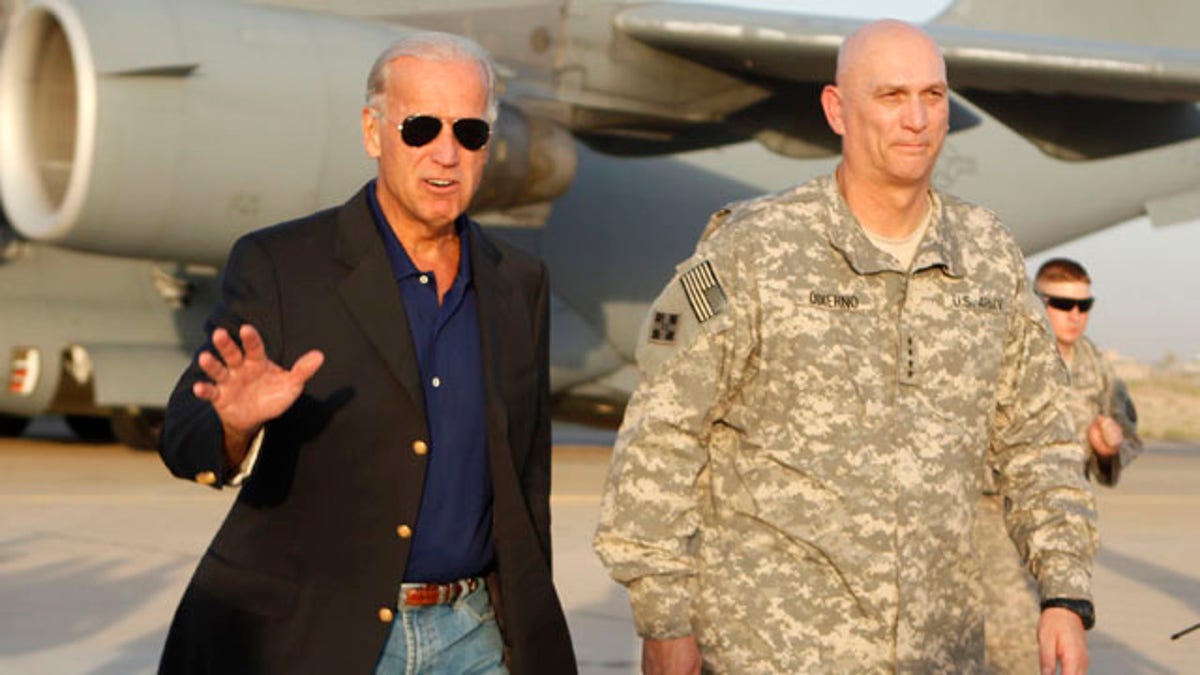
August 30: Vice President Joe Biden, walks with Gen. Ray Odierno, as he arrived in Baghdad, Iraq. (AP)
BAGHDAD -- Vice President Joe Biden returned to Iraq Monday to mark this week's formal end to U.S. combat operations and push the country's leaders to end a six-month postelection stalemate blocking formation of a new government.
Wednesday's ceremony will signal a shift toward a greater U.S. diplomatic role as the military mission dwindles seven years after the American invasion that toppled Saddam Hussein.
Underscoring the shift, officials said Biden will make a new appeal to Iraqi leaders, including Prime Minister Nouri al-Maliki, to end the political deadlock and seat a new government. March 7 parliamentary elections left Iraq without a clear winner, and insurgents have exploited the uncertainty to hammer Iraqi security forces in near-daily attacks.
Biden and al-Maliki will meet Tuesday morning "to discuss the political situation and withdrawal, and Iraqis taking over responsibility for security," the prime minister's adviser, Yasin Majeed, told The Associated Press.
It was the vice president's sixth trip to Iraq since he was elected and, officially, he came to preside over a military change-of-command ceremony. On Wednesday, Gen. Ray Odierno ends more than five years in Iraq and hands over the reins as commander of U.S. forces here to Lt. Gen. Lloyd Austin. Austin also has served extensively in Iraq, most recently as commander of troop operations in 2008-09.
But the Sept. 1 ceremony also marks the start of the so-called "Operation New Dawn" -- symbolizing the beginning of the end of the American military's mission in Iraq since invading in March 2003.
Just under 50,000 U.S. troops remain in Iraq -- down from a peak of nearly 170,000 at the height of the 2007 military surge that is credited with turning the tide in Iraq as it teetered on the brink of civil war. Additionally, U.S. troops no longer will be allowed to go on combat missions unless requested and accompanied by Iraqi forces.




